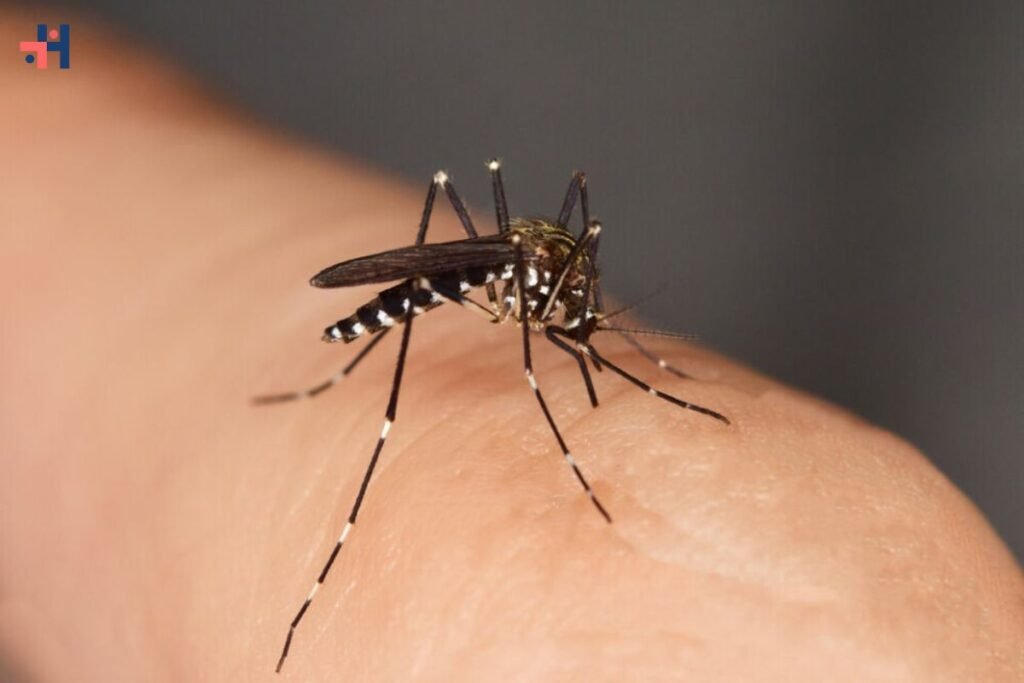(Source-connexionfrance.com)
Until September 2023, Normandy remained the last region in France untroubled by the tiger mosquito. However, this insect, known to potentially spread viruses like dengue, Zika, and chikungunya, has now been spotted in Seine-Maritime. It has not yet been detected in Calvados and Orne, but vigilance is crucial.
Reporting Sightings
The Regional Health Agency (ARS) has set up an online platform for residents to report sightings of tiger mosquitoes. The platform allows individuals to upload photos to support their reports, enabling the ARS to quickly implement measures to limit the mosquito’s establishment and spread. This reporting system is vital in mobilizing a swift response to potential threats and minimizing the risk of mosquito-borne diseases.
The tiger mosquito is easily distinguishable from common mosquitoes. It is small in size, has distinctive black and white stripes on its body, and is aggressive during daylight hours. This mosquito species is particularly voracious and is known to bite multiple times in a short span. Unlike the common mosquito, which tends to be active at dusk or dawn, the tiger mosquito is active throughout the day, making it a persistent nuisance.
Breeding Habits and Preventive Measures
The tiger mosquito thrives in stagnant water, even in small amounts such as water trapped in a bottle cap or a child’s toy left in the garden. Its breeding habits make it crucial for residents to be vigilant about eliminating potential breeding grounds. The ARS advises residents to empty or cover water containers, keep gutters clean, and ensure that water does not accumulate in pots, vases, or other containers. Regularly changing the water in pet bowls and birdbaths can also help reduce breeding opportunities. Taking these preventive measures can significantly limit the mosquito’s proliferation.
When a tiger mosquito sighting is reported on the ARS platform, a scientific investigation is initiated in the identified area. If the presence of the mosquito is confirmed, efforts will be made to destroy the outbreak and implement treatments against mosquito larvae. This proactive approach is aimed at delaying the mosquito’s inevitable arrival in Calvados and Orne as much as possible. The ARS’s swift response ensures that any potential breeding grounds are quickly treated to prevent the establishment and spread of the mosquito.
Health Risks
Beyond being a nuisance, the tiger mosquito is a potential vector for serious viruses such as dengue, Zika, and chikungunya. These diseases can cause severe symptoms and complications, making the presence of the tiger mosquito a significant public health concern. Dengue fever, for instance, can lead to high fever, severe headache, pain behind the eyes, joint and muscle pain, rash, and mild bleeding. Zika virus is particularly concerning for pregnant women as it can cause birth defects. Chikungunya can cause debilitating joint pain that can last for weeks or months.
Although no local transmission of these diseases has been recorded in Normandy so far, the ARS emphasizes the importance of early detection and control to prevent future outbreaks. The agency continues to monitor the situation closely and encourages the public to stay informed about the risks and preventive measures.
Community Engagement and Awareness
Community engagement is crucial in the fight against the tiger mosquito. The ARS has launched awareness campaigns to educate the public about identifying and reporting the mosquito. Informational materials, including posters, leaflets, and online resources, are being distributed to ensure that residents are well-informed about the steps they can take to prevent mosquito breeding and protect themselves from bites.
The ARS also collaborates with local municipalities to conduct regular inspections and ensure compliance with guidelines for mosquito control. By working together, communities can effectively reduce the risk of mosquito-borne diseases and create a safer environment for everyone.
The arrival of the tiger mosquito in Normandy marks a significant development in the region’s public health landscape. The ARS’s call for residents to report sightings is a crucial step in monitoring and controlling the spread of this insect. By staying vigilant, eliminating potential breeding sites, and taking preventive measures, Normandy can mitigate the risks associated with the tiger mosquito. Community engagement and awareness are key components in this effort, ensuring that the public remains informed and proactive in protecting their health and well-being.









